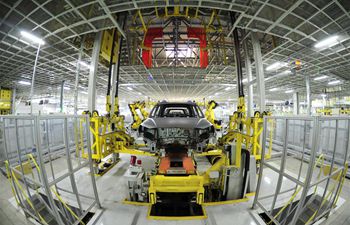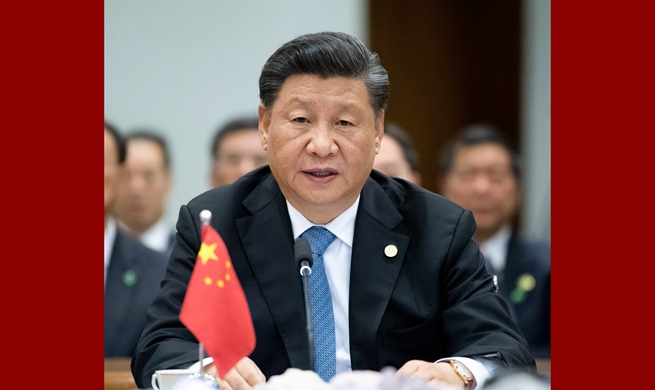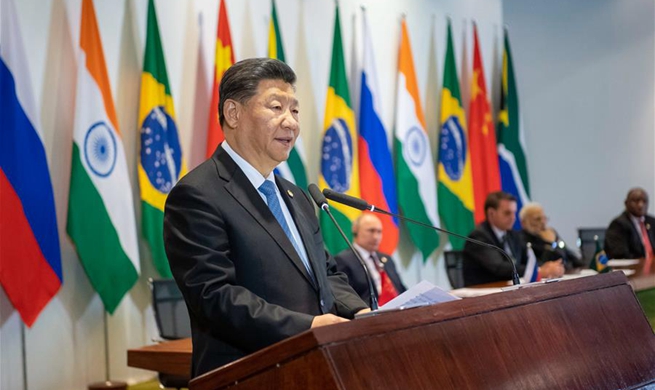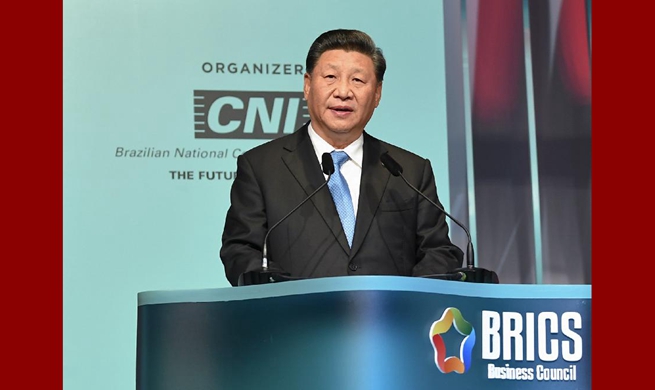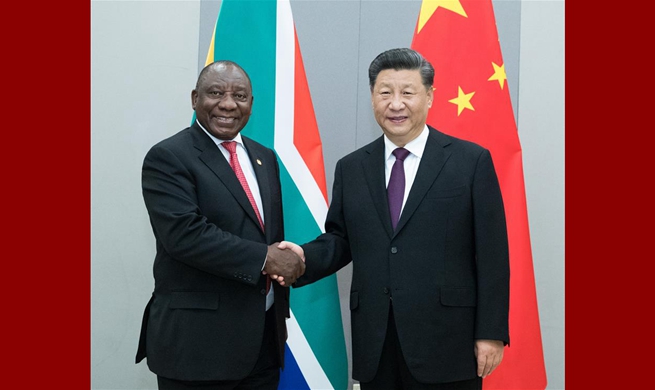by Pankaj Yadav
NEW DELHI, Nov. 16 (Xinhua) -- India's ace economist and former vice-chairman of Indian government's think-tank NITI Aayog Arvind Panagariya said India must join the Regional Comprehensive Economic Partnership (RCEP) as it would be in the country's interest.
Panagariya, a professor of economics at Columbia University, said India's announcement of not joining RCEP did not address the country's core concerns.
"If we are to realize our full potential in the forthcoming decade, further liberalization is a necessity," he told Xinhua. "We must drop our hesitations and act decisively, as we did during 1991-2007."
The National Institution for Transforming India (NITI), or NITI Aayog, provides both directional and policy inputs to the Indian government. Panagariya served as NITI Aayog's first vice-chairman, from January 2015 till August 2017.
The RCEP is an FTA grouping of the 10 countries of the Association of Southeast Asian Nations (ASEAN), along with China, India, Japan, South Korea, Australia and New Zealand. Its negotiations began in 2012, and have dragged on far longer than anticipated due to disagreements among countries, mainly India.
He said local producers that respond to competition by adopting new technologies, organizing production activity better and cutting down costs in other ways do survive.
"Our manufacturing becomes stronger (by joining RCEP) as it did in the wake of post-1991 economic reforms," he added.
Panagariya pointed that RCEP was in India's interest as if it was signed by other 15 countries while India chose to sit outside which would discourage investments from multinational companies.
He suggested that in case of FTA, like RCEP, it normally takes 15 to 20 years to fully implement it, and tariffs are not immediately knocked down. India's fear that the avalanche of imports of new products from China will begin is "all wrong."
"This is a great time for India to bring in large multinationals as investors to the country and if they have duty free access to the large Asian markets it will be an added kind of incentive for them to locate themselves in India," he added.
The much-celebrated Indian economist said he thought it was in India's interest.
"So you can't be outside of it because that would mean that anything we export to those markets will be subject to very high tariff whereas the other 15 who are members already. They will be exporting their products freely to each other's markets. That leaves our exporters at very big disadvantage," he said.
"Ultimately, Indian industry has to compete in global market. Otherwise, we are left isolated," Panagariya said, adding that Asia is a very large growing market and the center of gravity of global economy. "I hope the prime minister sees that."
Meanwhile, another Indian expert and noted economist Nayan Chanda also favored the idea of the South Asian giant joining RCEP in an article he wrote in English daily The Times of India on Saturday.
"By continually protecting its inefficient companies, India is eliminating the market competition that winnows out struggling businesses. Shielding weak and outdated manufacturing from foreign rivals will cause long-term harm to India's industrial ambitions and the 'Make-in-India' plan ," said Chanda, especially at a time when artificial intelligence and automation are rapidly transforming the market.
Chanda, the founder and editor-in-chief of YaleGlobal Online magazine, said protectionism has deprived Indian consumers of the quality and price competitiveness they expect and deserve.



